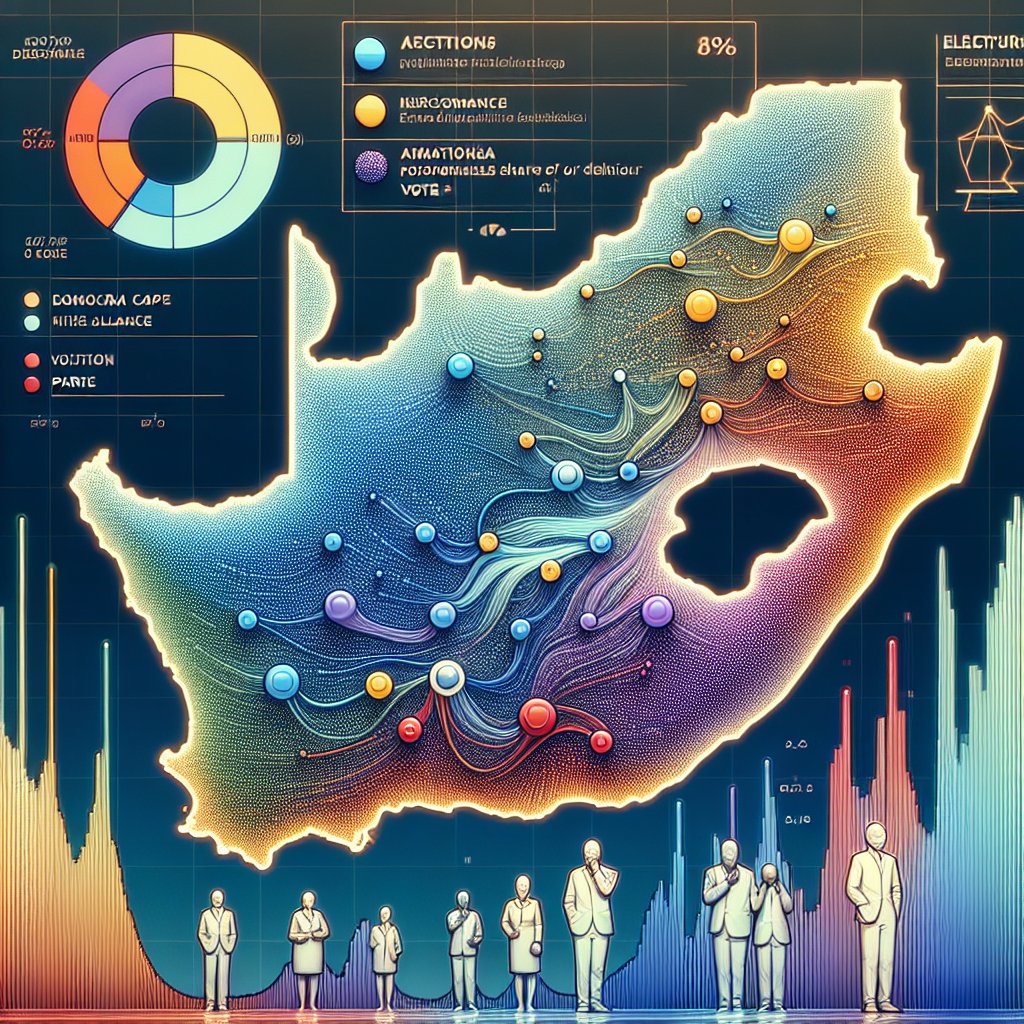Image created by AI
Analyst Predicts DA Majority Threatened in Western Cape Amid Rise of Smaller Parties
The political landscape in the Western Cape could be primed for significant change as smaller parties emerge as substantial competitors, potentially disrupting the Democratic Alliance's (DA) stronghold in the province. This insight comes from Harlan Cloete, a political analyst and research fellow at the University of the Free State, amid rising political engagement in one of South Africa's key electoral battlegrounds.
As the province gears up for the forthcoming elections, the DA faces the prospect of losing its outright majority. This speculation has been fueled by the recent announcement of ActionSA's premier candidate in Manenberg on the Cape Flats, marking a significant development in the regional political scene. Angela Sobey, the designated premier candidate for ActionSA, brings with her the potential to sway voter sentiment. Her roots in Woodstock and past residency in Manenberg provide her candidacy with local resonance and an understanding of community issues that could prove influential.
According to Cloete, the DA's traditional voter base might be eroding, paving the way for newer parties to make substantial inroads. ActionSA, a political entity that was not a factor in the last provincial and national elections, is positioned to capitalize on this shift. "ActionSA," Cloete asserts, "will definitely eat from the DA," underscoring a palpable concern within a party that has historically enjoyed robust support in the province.
The indication that the DA may experience a waning endorsement could signify a transformative period in Western Cape politics. Disgruntled voters, whose loyalty to DA might have dimmed, represent a segment ripe for the picking by emerging parties like ActionSA that are keen to distinguish themselves. They present alternative platforms, challenging the status quo and appealing to those seeking change.
Electoral dynamics within the province are complex, involving a myriad considerations such as identity politics, service delivery track records, and candidate appeal. The DA, which has been at the helm of the provincial government for several years, now needs to prepare for a competitive campaign likely centered around sustaining trust and proving their continued relevance to a populace facing pressing socio-economic challenges.
Notably, this shift is not confined solely to ActionSA. Other smaller parties and independent candidates are also vying for prominence in the Western Cape. The combined effect of these aspirants could fractalize the vote, further eroding the DA's grip on an outright majority and potentially leading to coalition governance scenarios.
Given the possibility of this electoral shake-up, political strategists within the DA will have to innovate and reassess their outreach strategies. The party's campaign will have to address the concerns of those voters who might be contemplating a change in allegiance while strengthening their core support base.
This evolving dynamic in the Western Cape is a microcosm of South African politics where electoral volatility is common. Smaller parties' burgeoning influence also reflects a broader disillusionment with the traditional political heavyweights. The rise of these entities indicates a desire for renewed governance approaches and highlights the electorate's appetite for political diversity.
As the election date approaches, all eyes will be on the Western Cape. It will serve as a bellwether for wider political trends in the country, and its outcome might just signify a new chapter in South African democracy where smaller parties no longer play a peripheral role but are central to the formation of government and policy direction.










